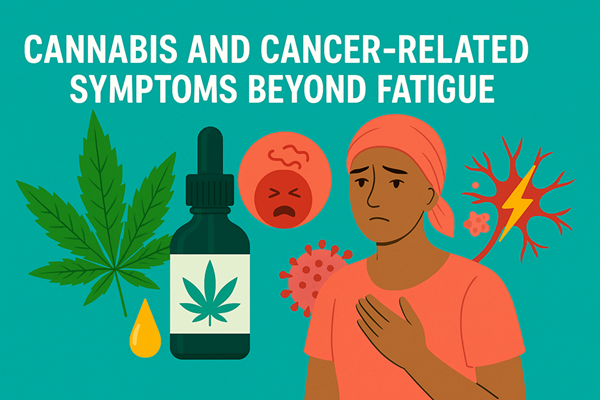Cannabis and Cancer-Related Symptoms Beyond Fatigue

Cancer treatment can be tough. Many patients deal with more than tiredness alone. Chemotherapy and radiotherapy often come with side effects such as nausea, loss of appetite, pain, and nerve problems. While traditional medicines help some people, others find that medical cannabis offers extra relief.
This post looks at how cannabis may support patients with cancer-related symptoms beyond fatigue.
Nausea and vomiting
Chemotherapy-induced nausea and vomiting are some of the most distressing side effects for cancer patients. Standard anti-sickness drugs do not always work, and they can come with their own unwanted effects.
Cannabinoids such as THC have been studied for their ability to reduce nausea and vomiting. Some patients report that cannabis helps when other treatments have failed. It can also improve appetite, which is often lost during chemotherapy.
Appetite and weight loss
Loss of appetite is common during cancer treatment. Weight loss can make recovery harder, which can lower overall wellbeing.
Medical cannabis may help stimulate appetite, sometimes known as “the munchies”. This effect can support patients in maintaining a healthier weight during treatment. It is not about overeating but about regaining a normal desire for food and enjoying meals again.
Pain management
Cancer and its treatments can cause different types of pain. This can include bone pain, muscular aches, and discomfort caused by tumours pressing on nerves. Strong painkillers like opioids are often prescribed, but they are not suitable for everyone and can cause heavy side effects.
Using cannabis for cancer pain, particularly nerve-related pain, has been shown to have massive benefits. Some patients find it reduces the need for high doses of other pain medicines, giving them a better quality of life.
Nerve pain (Neuropathy)
Chemotherapy can damage nerves, leading to tingling, burning or numbness in hands and feet. This is called chemotherapy-induced peripheral neuropathy. It can be very difficult to treat with standard medicines.
Early research suggests that cannabis may help calm nerve pain and reduce the uncomfortable sensations caused by neuropathy. Despite the need for further studies, patients frequently report benefits that simplify their daily lives.
A note on safety
Medical cannabis is not suitable for everyone. It can interact with other medications and may cause side effects such as dizziness or short-term memory issues. This is why it is important to consult a qualified doctor who can assess your medical history and guide you through safe options.
Final thoughts
Cancer treatment affects more than energy levels. Nausea, appetite loss, pain and neuropathy are all common challenges. Medical cannabis is showing promise as an additional tool to help patients cope with these symptoms.
It is not a cure, and it should never replace traditional treatment, but for some people it can improve comfort and quality of life during a very difficult journey.


